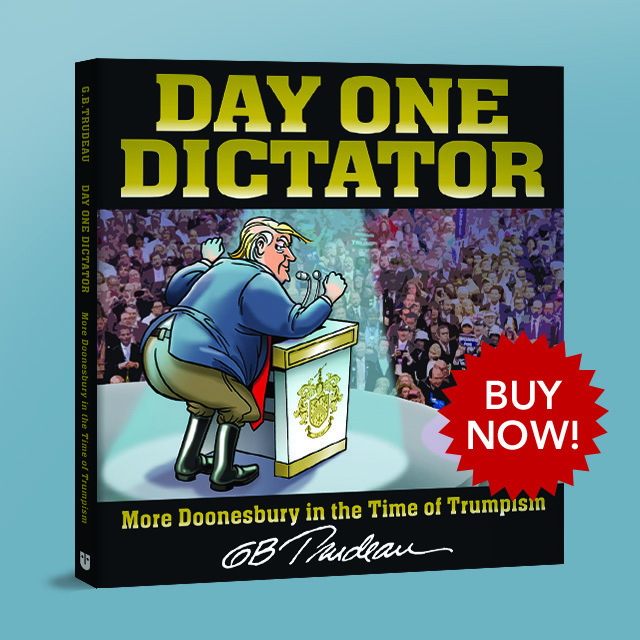Doonesbury by Garry Trudeau for July 13, 2016
Transcript:
Slackmeyer: Good morning, Gretchen. Gretchen: Good morning, sir. This gentleman's been waiting to see you. Dumbarton: Hello, sir, my name is Dumberton. Slackmeyer: Dumbarton? Gretchen: Also, Ivan Boesky called. Twice. Dumbarton: I'm from... Slackmeyer: Boesky? Boesky called here? Gretchen: Yes, sir. Dumbarton: The S.E.C. Slackmeyer: Who is this Boesky guy? Am I supposed to know him?









LameRandomName,
The Founding Fathers opted for limited government (Jeffersonian) but with a strong central authority (Hamiltonian). How did they do this? By installing the famous “checks and balances” among the three branches of government. THAT’S what Limited Government means…. not Small Government.
The Founding Fathers had no illusions about the impulses of states to do their own thing (see: Secession), thus they empowered the federal government to override those impulses with powers outlined in the 7 Articles of the Constitution (see: Civil War).
The Founding Fathers were not “libertarians.” They knew the country would evolve and so wrote the Constitution to guard against the very acts that caused states to seize power away from the federal government and give it to themselves (thus weakening the country and opening it up to conquest by Great Britain, France or even Spain). They wrote into the Constitution the authority for the federal government to wrest those powers back, by force if necessary. Thus, the Civil War.
Taxes was another example. States could levy taxes amongst themselves as they will, even taxing those doing commerce across state lines. Since federal income taxes had to be apportioned equitably, income taxes were declared Unconstitutional. However, the Founding Fathers wrote into the Constitution the means to amend it. So Congress followed the rule and passed to the states a Constitutional Amendment to make federal income taxes constitutional, which the states ratified – all according to the Constitution’s rules.
Another example: slavery. Remember the Emancipation Proclamation? It freed slaves only in the “States in Rebellion,” not the slave states still in the Union: Kentucky, Maryland, Missouri, and Delaware. Why? Because the Dred Scott decision of the Supreme Court declared slavery as Constitutional, thus permitting slavery in any state. Dred Scott was still the law of the land when Lincoln issued the Emancipation Proclamation. The 13th Amendment outlawed slavery by making slavery unconstitutional.
Brilliant system! Hats off to those Founding Fathers!!
If only we had politicians like them today.